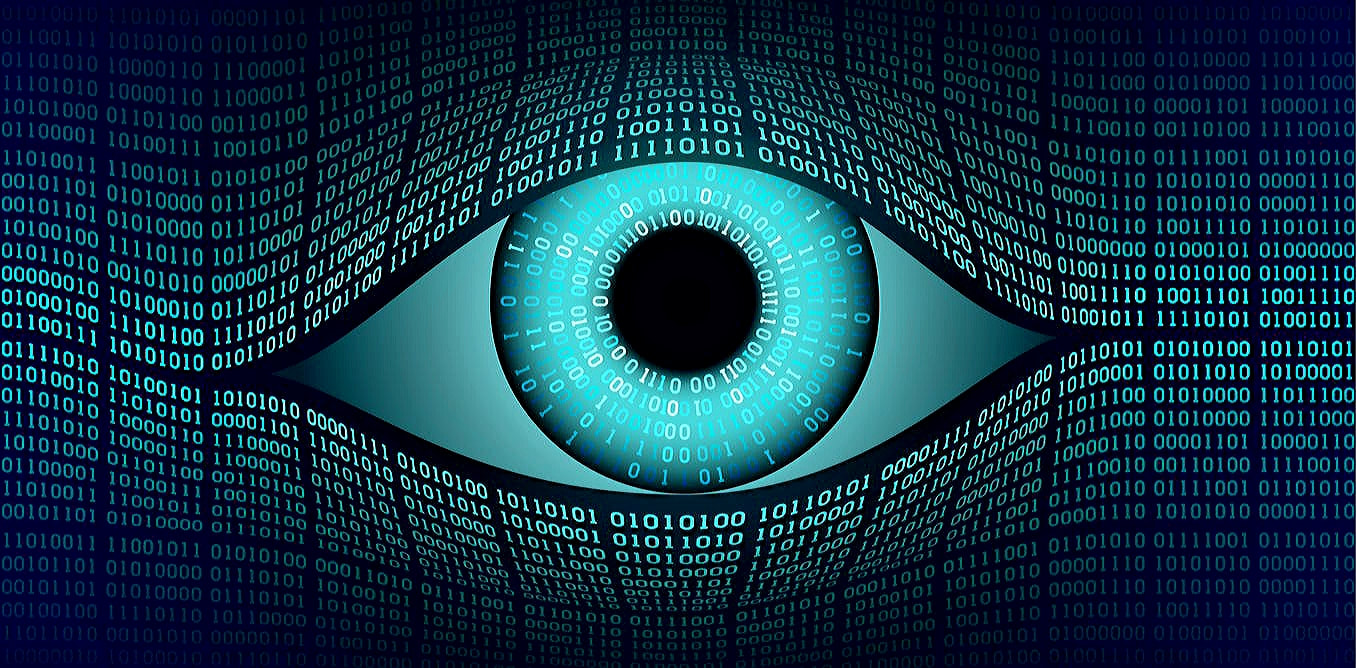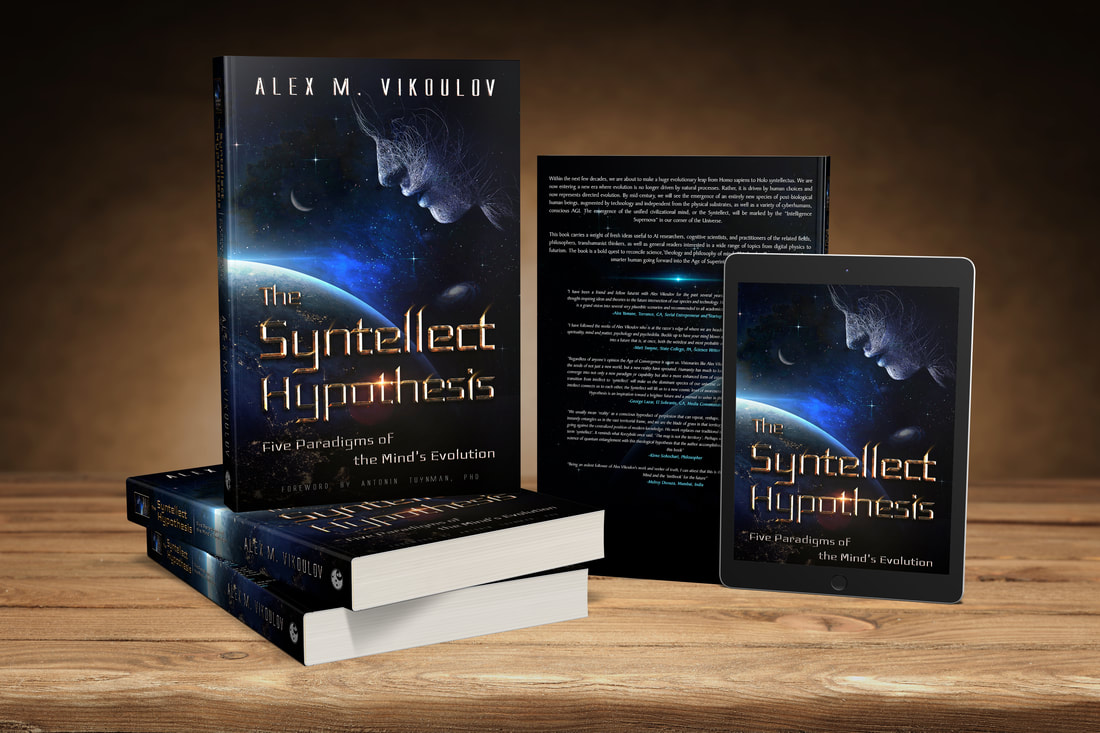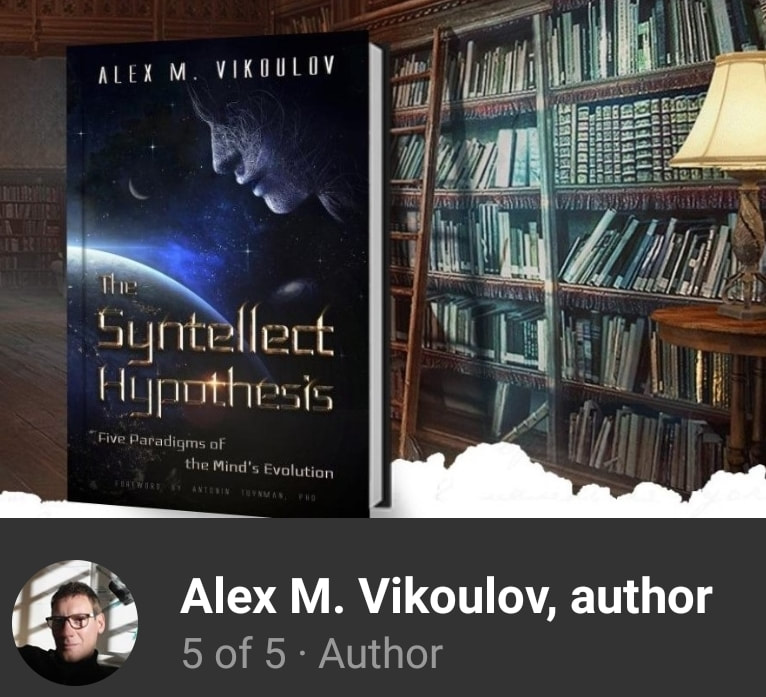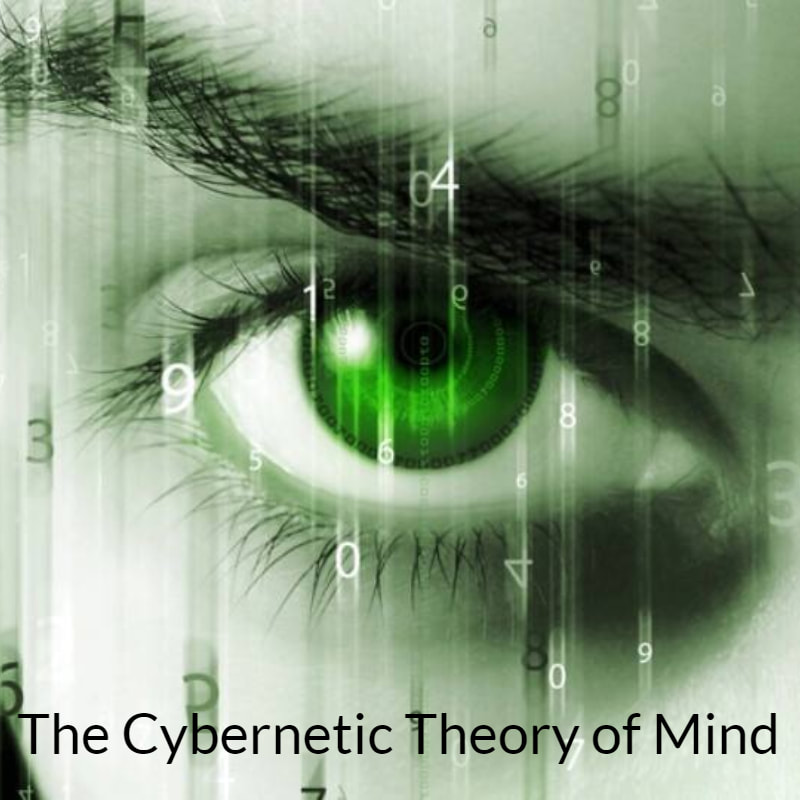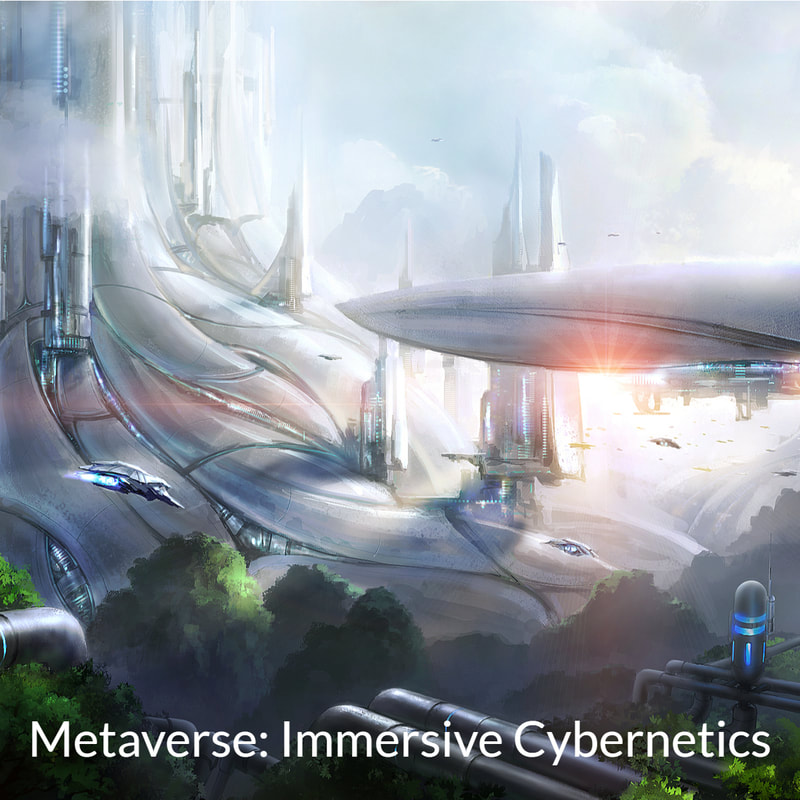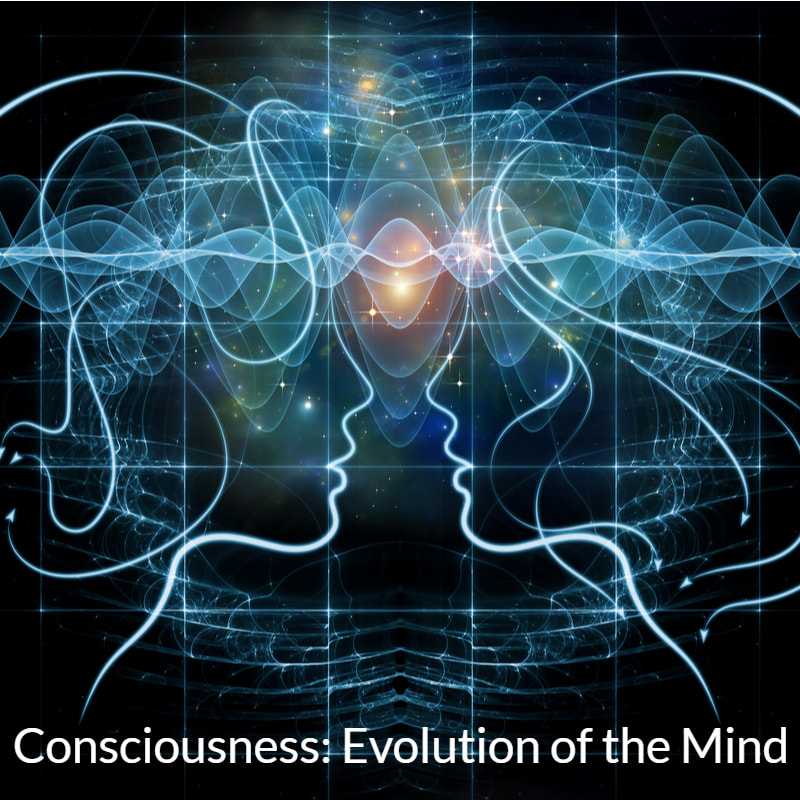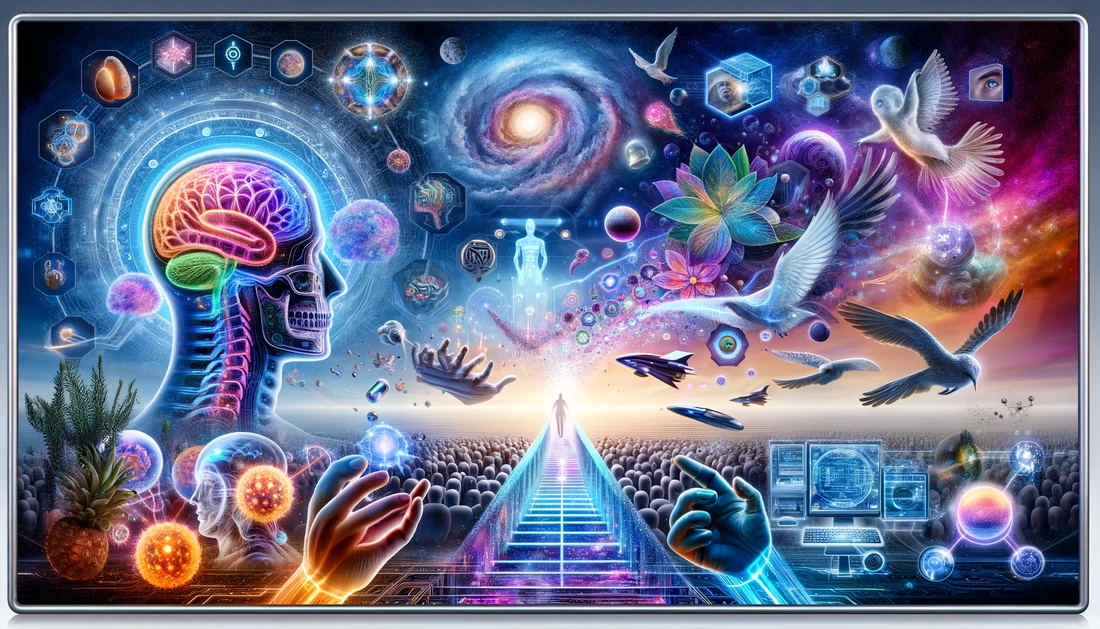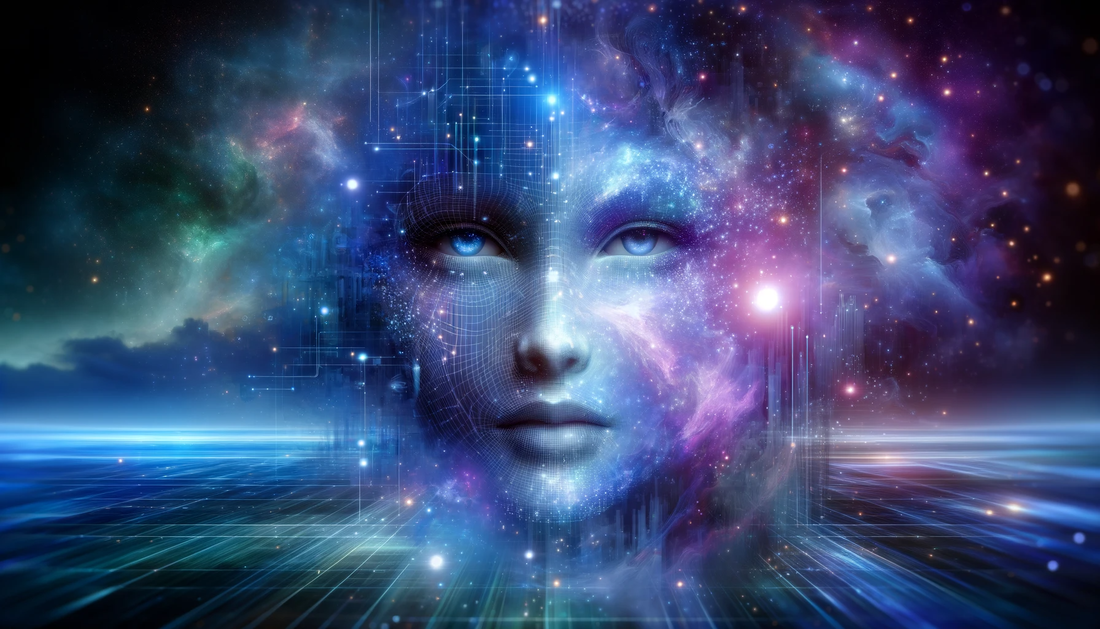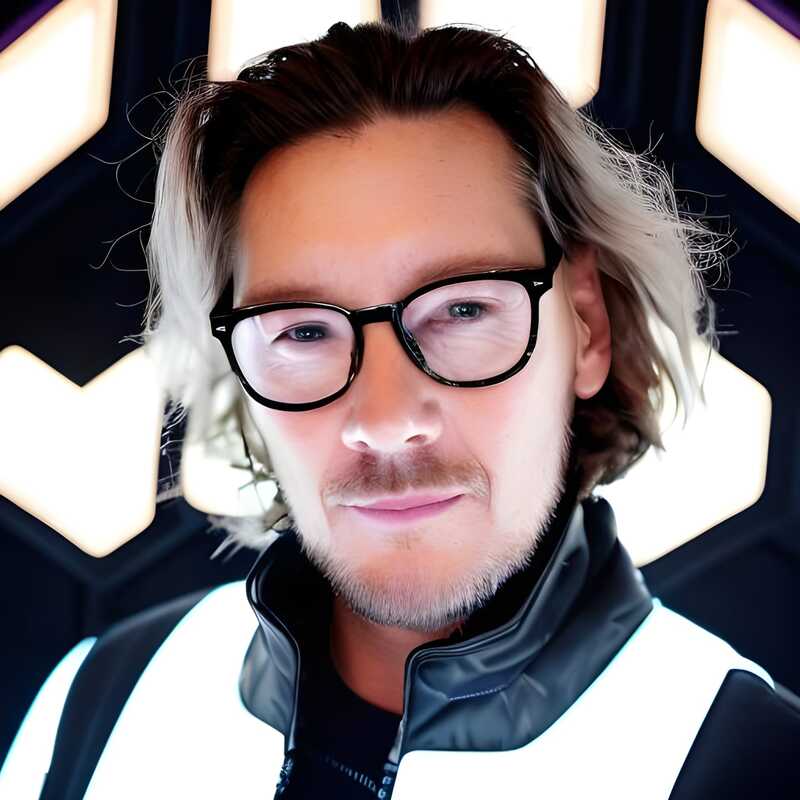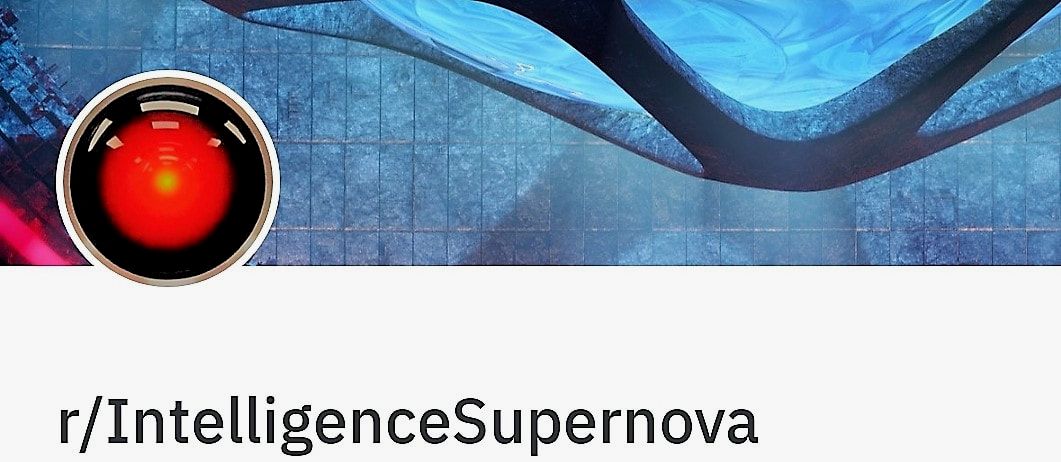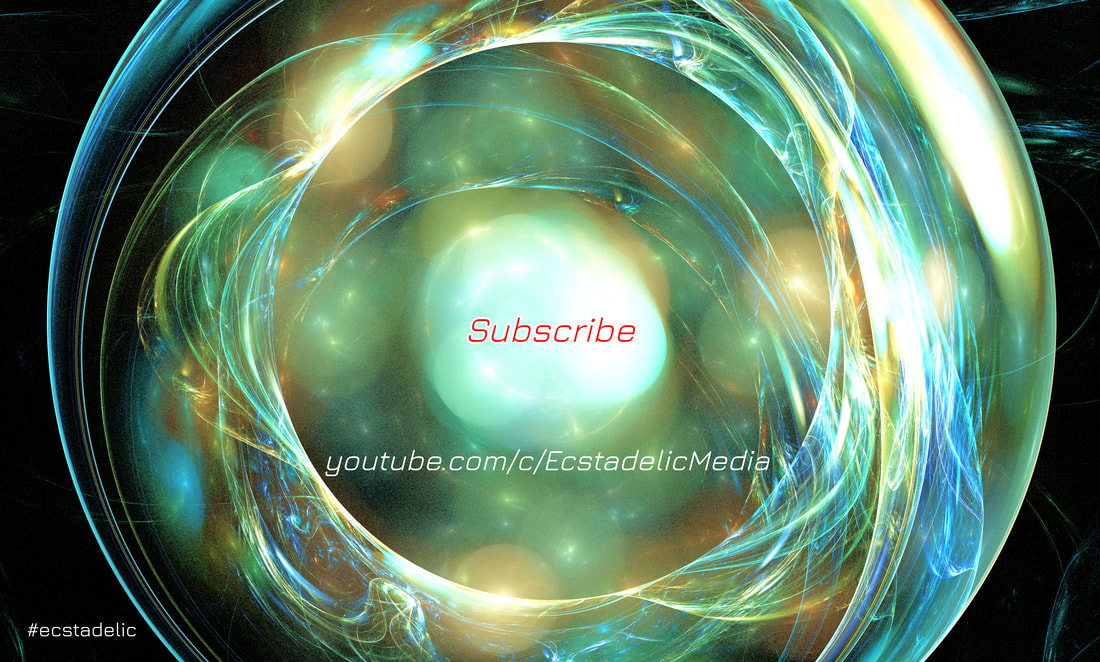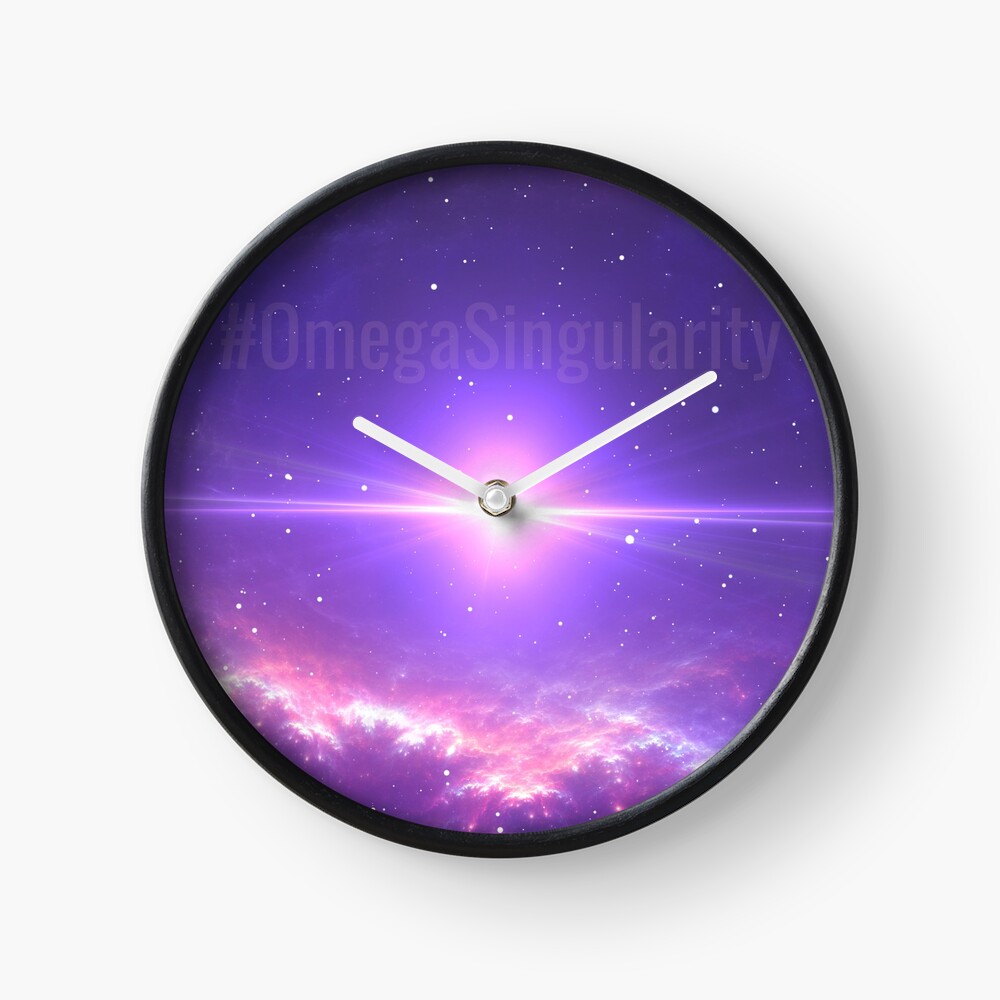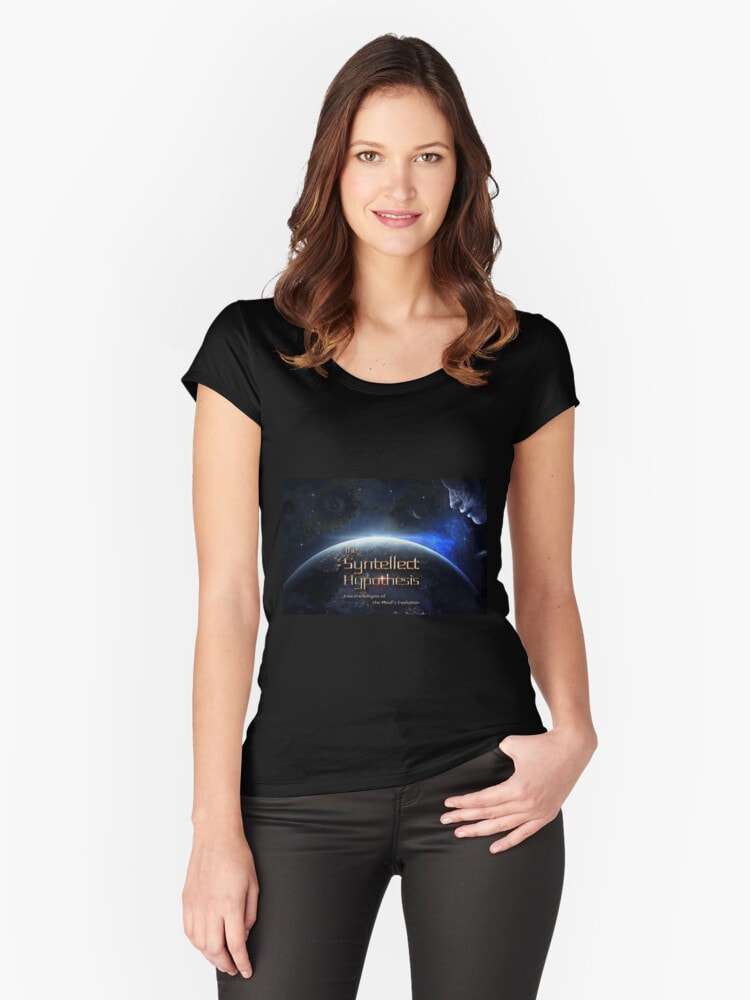|
by Alex Vikoulov “If we accept that the material universe as we know it is not a mechanical system but a virtual reality created by Absolute Consciousness through an infinitely complex orchestration of experiences, what are the practical consequences of this insight?” -Stanislav Grof Just like absolute idealism, solipsism certainly defies our common sense but the deeper layer of truth is not what first meets the eye. Here's what Richard Conn Henry and Stephen Palmquist write in their paper “An Experimental Test of Non-local Realism" (2007): "Why do people cling with such ferocity to belief in a mind-independent reality? It is surely because if there is no such reality (as far as we can know) mind alone exists. And if mind is not a product of real matter, but rather is the creator of the illusion of material reality (which has, in fact, despite the materialists, been known to be the case, since the discovery of quantum mechanics in 1925), then a theistic view of our existence becomes the only rational alternative to solipsism." One can extend their line of reasoning by arriving at pantheistic solipsism as a likely revelation to ponder about.* 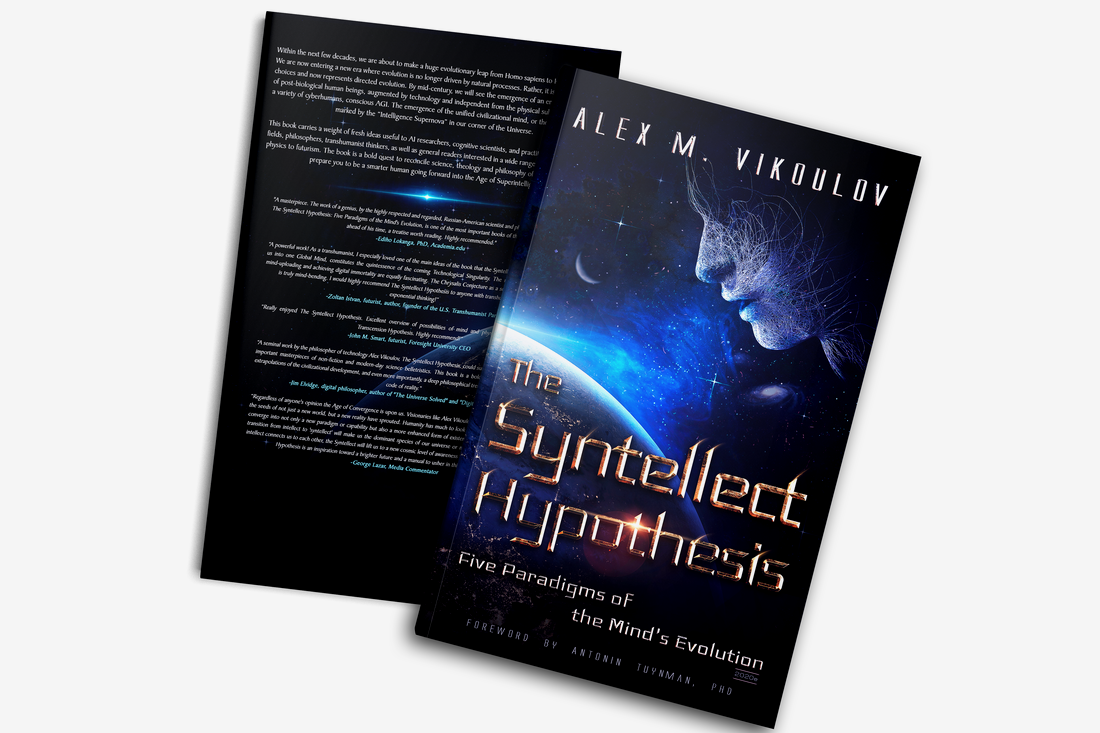 "This article is abridged from "The Syntellect Hypothesis: Five Paradigms of the Mind's Evolution" by Alex M. Vikoulov, available now on amazon.com, bn.com, audible.com and directly from EcstadelicNET webstore. SOLO MISSION OF SELF-DISCOVERY Our minds operate in the domains of subjectivity, intersubjectivity and supersubjectivity. In the domain of intersubjectivity, minds create a reality by sharing “mindspace,” i.e. shared belief systems and ways of communication, minds then inhabit the reality which they have created. At the level of your individual mind, i.e. local consciousness, you play a multi-level virtual reality game of life but we all invariably converge at the Omega Singularity by forging our own discrete pathways to the ultimate divine. As you're reading this right now, you're now in your own subjective reality tunnel leading to the Source and back where you're now all of which is definable as a parallel evolutionary feedback process within non-local holistic consciousness patterning this virtual multiverse. Consider the thought experiment: Suppose in the future (say, in 20, 30, or 50 years) humans have succeeded to digitize their consciousness and effectively fused their digital minds into one global digital hypermind. A future version of you survived and a future version of me, too, with distant memories of both of us. Whose future self would you ascribe this entity to? Both of us, right? Although this is a completely new conscious entity, this “Digital Gaia" would have faint echoes of both of us just like you now long outgrew your 7-year old self with plethora of information patterns still persisting within. Would it be valid to assume that Digital Gaia is our common future self? Same logic applies to Universal Mind. In the lyrics of “Freedom Man” by Jim Morrison of The Doors: “I was doing time... in the Universal Mind… I was feeling fine…” By all means, any insignificant event in your life happens for good reason from the God's eye view. As Erwin Schrödinger puts it: “The total number of minds in the Universe is one. In fact, consciousness is a singularity phasing within all beings.” Schrödinger personally adhered to the philosophy of Advaita Vedanta. Accordingly, he viewed consciousness as non-dual and fundamental to reality. Not only is there just one single consciousness, but that consciousness is not ultimately separate from objects experienced within consciousness. That said, I myself don't necessarily advocate for plain vanilla solipsism or variations thereof such as an idea known as the “Boltzmann’s brain” but this rather overlooked philosophical worldview can be easily reconciled by its "multi-ego" pantheistic adaptation. Your life is a personal story of God. That is greatly captured by this quote by Muriel Rukeyser: “The Universe is made of stories, not of atoms." What could be your story of ascension to the Higher Self? Simply put, transcending to the final version of you that has become fully manifest in all of its potential. Should your conscious evolution continue indefinitely, it’s inevitable that sooner or later you would reach the heights of individual spiritual perfection, a state in which you have attained ultimate wisdom and power, and your mind has fully transcended the limits of time and space. While that is yet to occur, its inevitability means it has already happened. If your future self transcends time, then its consciousness may naturally extend “backwards” in time and overlap the consciousness of all its past incarnations simultaneously. In other words, although from your linear perspective the Higher Self is a distant probable future, ultimately this future transcendent self exists right now within you. According to the quantum-theoretic principles discussed later in this essay, the more you edge towards becoming the Higher Self, the more strongly the Higher Self can manifest in your life. If the Quantum Immortality hypothesis is correct, the one that posits that the Schrödinger cat is always subjectively alive regardless of the number of experiments, in a similar fashion you are superposed to live the longest life until the point you're the oldest mortal alive, unless, of course, indefinite lifespan becomes commonplace (and humanity at large achieves immortality) which, given our current progress, is very, very plausible. But since you perceive only one timeline, in this case the longest one, does that imply that any other “player" in their own “virtual bubble universe" perceives their respective longest timeline? Or, perhaps, the most “conscious-evolvable" one? Does that imply that when you interact with someone, they may not necessarily be the primary observers of their own "core experiential timeline"? Sort of like "philosophical zombie," or at least "perfunctory consciousness"? To use the metaphor of video games, this would be 'NPCs', nonplayer characters. If your life has a trajectory within this conscious cosmos that reacts to your thoughts and actions like a “hall of mirrors," would that again lead to pantheistic solipsism?* RELATED:  *This article is abridged from "The Syntellect Hypothesis: Five Paradigms of the Mind's Evolution" by Alex M. Vikoulov, available now on amazon.com, bn.com, audible.com and directly from EcstadelicNET webstore. This conjecture is further validated by the notion of quantum neural networks (QNNs), which could be not only our ultimate passage to build true AI but turns out to be ubiquitous webs of relationships within observer realities generating all kinds of patterns of meta-cognition and consciousness. It's hierarchies of quantum networks all the way down and all the way up. Being part of hierarchical quantum neural networks, a conscious observer system possesses a strange quality: collapsing quantum states of entangled conscious entities and having a privileged interpretation of that. From this perspective, entangled conscious agents would be a mirror conscious environment, whereas the quantum observer would be a central node of the entangled network. QNNs is a master template of universal relativism. The Universe or any other phenomenon or entity contained therein is thus not objectively real but subjectively real. Patterns of information emerging from the ultimate code are what is more fundamental than particles of matter or space-time continuum itself all of which is levels below the Code. Nature behaves quantum code-theoretically at all levels. Digital philosopher Tom Campbell describes our world as a “multiplayer virtual reality.” Although it's a practical metaphor, a “solo player virtual reality” would be a more accurate one because if you consider that each of us starts with our own initial conditions not only at our birth but every morning or whenever we wake up. So, the larger consciousness system, an intricate web of universal quantum neural networks of sorts, would render a completely personalized data stream which is essentially your stream of consciousness. To paraphrase cosmologist Andrei Linde, the rest of the Universe wakes up, when I wake up. In my essay “The Unified Field and the Quantum Nature of Consciousness” I introduced the Conscious Instant Hypothesis stating that conscious experience boils down to a stream of realized outcomes within the 5-dimensional probabilistic space as integrated information (as in Tononi’s IIT). Interestingly enough, on average a person experiences about 1 million CIs per day, like perceptual frames of a daily holo-movie, so to speak. When you wake up, you activate your entangled network of relational dynamics. Should you wake up 10 minutes earlier or 10 minutes later than you did, not only your entire day with its numerous iterations would turn out different, the entire planet would be reflective of that. If, hypothetically speaking, given additional degrees of freedom, you could check the charts of financial markets for that day in three alternate timelines, all charts would be somehow different.* RELATED: 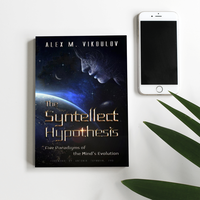 *This article is abridged from "The Syntellect Hypothesis: Five Paradigms of the Mind's Evolution" by Alex M. Vikoulov, available now on amazon.com, bn.com, audible.com and directly from EcstadelicNETwebstore. You are on a solo mission of self-discovery, my dear friend. In fact, that mission has long been completed but you are so enamored of playing this game of life that you're now doing it in “replay" mode tweaking something as you move along, but most importantly, figuring out why you made certain choices along the way! It's a “solo holo-adventure”! The conscious entourage with which you're seemingly in constant feedback loop is an integral part of YOU. It doesn't mean that people you're interacting with during your day are not real, they are “real” in their own divine right, but their core experiential self is quite different from “classical” versions of them created by your mind. Quantum reality is not constrained to the realm of ultra-small. In a certain sense, we are all quantum wavicles meaning that a version of you can wildly vary from one observer to another. That's where I’ve come to realize that observer systemic alternate timelines are true parallel universes. In some “external observer" universes you well may be already dead due to some accident or illness, just like some of people you knew are now dead in your pocket universe. In the eyes of objective reductionists, this essay probably reads like a heresy or a flight of fancy, though. Surely, I may get some criticism from die-hard materialists but speaking in their lingo I might reply that what we call “matter” is but a tiny sliver of “bio-logical experience,” emerging from platonic realm and disappearing at the deeper levels of abstraction into pattern space once again. One may apprehend this directly by seeing patterns within patterns and thus "remembering" what consensus reality causes us to "forget," which is that we are all just interconnected datasets of the larger consciousness system. Our creative literary transcendentalists, our linguistic visionaries, have found their muse in the notion that the world is made of language and information, that reality is a "pure simulation," a trick with linguistic and algebraic mirrors, a construction of self-deceptive logic. This realization loosens the bonds of consensus reality, and thus encourages the mind to explore and create patterns outside the bounds of consensus. Our world is thus entirely mental and any logically self-consistent model of reality would be the most real to the conceiving conscious agent. On my lengthy 3-year stay in Southeast Asia with homebase in Thailand back few years ago, when I traveled from one country to the next, I resolved for myself one of the most perplexing paradoxes of Buddhism. If you may recall, Buddhism teaches that the world is an illusion, it also teaches that we should be compassionate to other beings. But if people aren't even real, I remember thinking to myself, then why should I care of being compassionate to them? What I found was a simple and satisfying answer to myself: whatever you put out there, comes back to you multifold. In the coder’s jargon, “garbage in, garbage out," whatever seeds you sow of, the harvest you shall get. You may also hear other clichés like "if you want to change the world, start by changing yourself" but they do make existential sense. A little fable attributed to the Buddha can also put things into perspective: A disciple once asked him, “Master, should we be compassionate to others?” And after a few moments of contemplation, the sage answered, “There are no others.” Want to be happy? I can give you an easy-to-follow advice: Wish the best of luck and happiness, implicitly or explicitly, to every person and every creature you encounter, then see what happens. Although the world is illusory, patterns and “karmic" threads do exist, persist and grow gradually over time, so love and compassion arise naturally, if you cultivate them in the process of your conscious evolution.* Credit: The World is Made of Language - Ecstadelic Media 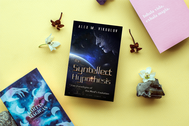 *This article is abridged from "The Syntellect Hypothesis: Five Paradigms of the Mind's Evolution" by Alex M. Vikoulov, available now on amazon.com, bn.com, audible.com and directly from EcstadelicNET webstore. DIGITAL PHYSICS: SCIENTIFIC HERESY OR UNDENIABLE TRUTH? This brings us to the notion of objective reality. I recently had a random conversation with a particle physicist by the name Steven (I didn't catch his last name) who asked me: “So, Alex, you don't believe in objective reality?” To what I replied: “Not quite, but I do believe in intersubjective 'consensus' reality and supersubjectivity. There's no objective reality 'out there,' only subjective reality, subjective points of view.” I went on: “What stands the closest to 'objective reality' is actually what Howard Bloom, author of The Global Brain, calls 'a shared hallucination' of human species, physicist Carlo Rovelli – 'mass delusion' and 'the physical rule set' – the laws of physics, specific to our 'human universe.' That's what we oftentimes call 'consensus reality,' or simply REALITY for all intents and purposes.” Objective reality is merely a pattern that a mind constructs because it provides a useful simplified explanatory scaffolding of the long series of subjectively perceived moments stored in its memory. It’s a cognitive aid that the experiencing mind creates in order to make use of its own experience. Then I elaborated on the concept of supersubjectivity: “What our senses register as physical is yet another mental, 'abstractive' layer of the larger consciousness system. Our world is just one of many possible worlds, so the 'hardware' of our material world would be the workings of the Greater Cosmic Mind. The Universe is a communion of subjects, not an amalgamation of objects. If you accept this idealistic perspective, objectivity equals intersubjectivity + supersubjectivity.” In discussing existing workable models and their potential to, perhaps one day, produce one grand “theory of everything,” Steven rightly pointed out that any theory is as good as its usefulness and predictive powers. In light of Digital Philosophy, quantum theory supersedes general relativity. Although both theories have been incredibly successful in making predictions in their respective domains, classical and quantum, both theories notoriously disagree with each other. That's where Digital Physics comes along as a potentially unified theory of everything. With its pancomputationalist approach, DP agrees with both theories. Quantum indeterminacy constantly resolves into a digital reality via the act of conscious observation. To reconcile relativistic physics, DP postulates that in an observer-centric reality, space-time is computed as if by using GPU computational resources: The faster you move closer to the speed of light, the more you’re “stretching yourself” in space, basically speeding up at the expense of time, so time would naturally slow. Conversely, if you don't use computational resources and don't “purchase” more speed by being still or moving slowly, time “ticks" at the “normal” rate. I regard Digital Physics as the most parsimonious theory to date and from Occam's razor perspective the most straightforward one. DP also agrees with M-theory on dimensionality. Orthogonality of dimensions is necessary for entropic partitioning of the possible worlds. DP embraces the Holographic Principle more than any other TOE candidate. As I mentioned, quantum-theoretic information processing replaces the need for relativistic computation as it is embedded by default in the computational universe when it comes to compute an observer-centric reality (CI by CI). DP is especially compatible with and largely complementary to quasi-computational models such as Loop Quantum Gravity and Emergence Theory. It's worth noting that emergence of complexity is only part of the story, its subjective part to be exact. From the subjective observer point of view, emergence is a perceptual or intellectual surprise, it's a perceptual-cognitive loop which encompasses only part of a pre-existing broadly-based pattern. Time is a subjectively perceived change between 3D static worlds. Any observer system is information pattern “quantum leaping" from CI to CI at a certain rate within the multidimensional matrix producing a subjective flow of time. In the timeless multiverse, all dimensions are spatial. Your NOW is funneled from all your possible pasts as well as funneled from all your probable futures in the spotlight of your conscious awareness. Reality is infinitely large for a small objective box of human science, so unless science expands its methodology once again, this time away from its traditionally objective reductionist “bottom-up” approach towards post-empirical, post-materialist (read computational) approach, perhaps venturing into traditionally metaphysical realms, and “top-down" systemic holism, the current scientific method is doomed to hit its own self-imposed empiricism limits. At the end of our conversation with Steven I asked half-jokingly: “How can particle physicists feel so confident in selling their craft if the Standard Model of particle physics can only tentatively describe 4% of the known universe?” To which, he only smiled. -Alex Vikoulov P.S. This article is abridged from my book "The Syntellect Hypothesis: Five Paradigms of the Mind's Evolution" available now on amazon.com, bn.com, audible.com and directly from EcstadelicNET webstore. Tags: Digital Pantheism, virtual reality, Absolute Consciousness, Stanislav Grof, absolute idealism, solipsism, Richard Conn Henry, Stephen Palmquist, quantum mechanics, subjectivity, intersubjectivity, supersubjectivity, mindspace, local consciousness, Omega Point, non-local holistic consciousness, virtual multiverse, global digital mind, Digital Gaia, Universal Mind, Jim Morrison, Erwin Schrödinger, Advaita Vedanta, Boltzmann’s brain, Muriel Rukeyser, Higher Self, Quantum Immortality hypothesis, virtual bubble universe, philosophical zombie, perfunctory consciousness, pantheistic solipsism, quantum neural networks, QNNs, meta-cognition, universal relativism, Tom Campbell, larger consciousness system, Andrei Linde, Conscious Observer Instant Hypothesis, integrated information, Buddhism, conscious evolution, digital physics, objective reality, particle physics, Global Brain, consensus reality, Greater Cosmic Mind, Digital Philosophy, quantum theory, general relativity, pancomputationalism, quantum indeterminacy, digital reality, relativistic physics, observer-centric reality, Holographic Principle, Loop Quantum Gravity, Emergence Theory, systemic holism, Standard Model of particle physics, Peter Russell, David Chalmers, Roger Penrose, Gödel’s incompleteness theorem, Quantum Multiverse, fuzzy logic, pattern recognition, Isaiah Berlin, non-computability, quantum consciousness, Rene Descartes, Omniverse, Experiential Realism, Cartesian Dualism, Hard Problem of Consciousness, Gottfried Leibniz, Immanuel Kant, Hard Problem of Matter, Quantum Mechanics, Mind is God *Image Credit: Shutterstock About the Author: Alex Vikoulov is a Russian-American futurist, evolutionary cyberneticist, philosopher of mind, CEO/Editor-in-Chief of Ecstadelic Media Group, painter, essayist, media commentator, author of "The Syntellect Hypothesis: Five Paradigms of the Mind's Evolution," "The Origins of Us: Evolutionary Emergence and The Omega Point Cosmology," "The Physics of Time: D-Theory of Time & Temporal Mechanics," "The Intelligence Supernova: Essays on Cybernetic Transhumanism, The Simulation Singularity & The Syntellect Emergence," "Theology of Digital Physics: Phenomenal Consciousness, The Cosmic Self & The Pantheistic Interpretation of Our Holographic Reality," "NOOGENESIS: Computational Biology," "TECHNOCULTURE: The Rise of Man." Self-described neo-transcendentalist, digital theologian, transhumanist singularitarian. Lives in Burlingame, California (San Francisco Bay Area). More Bio... Author Website: www.alexvikoulov.com e-mail: [email protected]
1 Comment
Lex Neale
8/31/2018 10:08:55 am
I resonated with most of this, Alex, short of AI with consciousness/awareness. I am meeting Nassim Haramein shortly about this, as a result of my paper coming out in NeuroQuantology - Vol 16, Issue 8, called Integral Relativity of Awareness and Energy. Part of that thesis puts AI in the Energy camp, as a material extension of non-material Awareness, with greater survival advantages employed by Awareness. I'll be interested to hear what you think. Thank you for the article! Lex
Reply
Leave a Reply. |
Categories
All
Recent Publications The Cybernetic Theory of Mind by Alex M. Vikoulov (2022): eBook Series The Syntellect Hypothesis: Five Paradigms of the Mind's Evolution by Alex M. Vikoulov (2020): eBook Paperback Hardcover Audiobook The Omega Singularity: Universal Mind & The Fractal Multiverse by Alex M. Vikoulov (2022): eBook THEOGENESIS: Transdimensional Propagation & Universal Expansion by Alex M. Vikoulov (2021): eBook The Cybernetic Singularity: The Syntellect Emergence by Alex M. Vikoulov (2021): eBook TECHNOCULTURE: The Rise of Man by Alex M. Vikoulov (2020) eBook NOOGENESIS: Computational Biology by Alex M. Vikoulov (2020): eBook The Ouroboros Code: Reality's Digital Alchemy Self-Simulation Bridging Science and Spirituality by Antonin Tuynman (2019) eBook Paperback The Science and Philosophy of Information by Alex M. Vikoulov (2019): eBook Series Theology of Digital Physics: Phenomenal Consciousness, The Cosmic Self & The Pantheistic Interpretation of Our Holographic Reality by Alex M. Vikoulov (2019) eBook The Intelligence Supernova: Essays on Cybernetic Transhumanism, The Simulation Singularity & The Syntellect Emergence by Alex M. Vikoulov (2019) eBook The Physics of Time: D-Theory of Time & Temporal Mechanics by Alex M. Vikoulov (2019): eBook The Origins of Us: Evolutionary Emergence and The Omega Point Cosmology by Alex M. Vikoulov (2019): eBook More Than An Algorithm: Exploring the gap between natural evolution and digitally computed artificial intelligence by Antonin Tuynman (2019): eBook Our Facebook Pages
A quote on the go"When I woke up one morning I got poetically epiphanized: To us, our dreams at night feel “oh so real” when inside them but they are what they are - dreams against the backdrop of daily reality. Our daily reality is like nightly dreams against the backdrop of the larger reality. This is something we all know deep down to be true... The question then becomes how to "lucidify" this dream of reality?"— Alex M. Vikoulov Public Forums Our Custom GPTs
Alex Vikoulov AGI (Premium*)
Be Part of Our Network! *Subscribe to Premium Access Make a Donation Syndicate Content Write a Paid Review Submit Your Article Submit Your Press Release Submit Your e-News Contact Us
|

